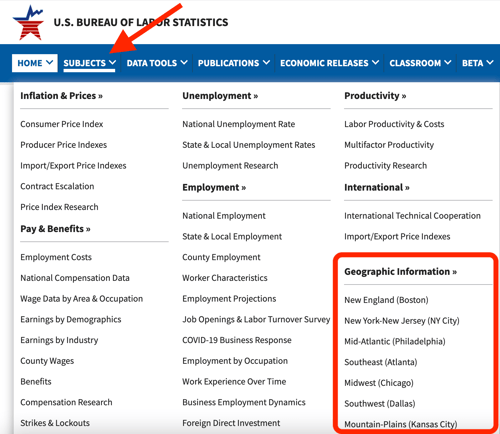No matter the size of the organization, every business should have a competitive intelligence strategy. Larger organizations will typically have a well-rounded strategy team to handle their competitive analyses, but a small startup likely doesn't have the resources to build out a whole CI team, especially in the early stages. While it may be difficult to balance competitive intelligence against the many other initiatives of a rapidly growing startup, CI is essential for a startup to disrupt, dominate, or create a market. Let’s take a look at what it takes to integrate competitive intelligence into a startup business strategy.
Why Startups Need CI
Creating a new and innovative product, service, or tool can be an exciting and overwhelming experience. Breaking into a new market means going up against existing players who have been in the game much longer than you. You need to know what the competitive landscape looks like so that you can differentiate yourself from the competition. The truth is that in order to innovate, you need to incorporate competitive intelligence into your business strategy. It seems simple, but first, there needs to be buy-in from key decision makers, especially because CI is a process, and most people want innovation and growth instantly. In order to show the key stakeholders how valuable CI is, you need to ensure that the right data is being collected and that it’s being used to benefit the growth of the company.
How to Get Buy-In from Key Stakeholders
Competitive intelligence isn’t a one-person job, so the CI champion needs to bring additional people into the process. More times than not, founders and executive level employees at a startup aren’t aware of their full competitive landscape. Many executives also don’t see their competition as a true threat and don’t want to allocate resources toward competitive intelligence. The job of the competitive intelligence champion is to show the importance of CI, and assure the executives that they will monitor and keep a pulse on outside activity in a way that benefits internal strategy. Also, having a dedicated CI professional allows a company to address issues that would typically go unnoticed and act upon them to create growth for the business.
In a startup environment, it’s not always easy to convince your team that you need to invest in certain areas of business. But, rather than selling them on small pieces of competitive intelligence, show them the full benefit of CI and how it can help your company grow to be market leaders. Whoever is leading the CI initiative within the organization should ensure that they have an executive on their side before progressing. That way, the executive can advocate and support initiating (and growing) a competitive intelligence strategy.
A great piece of advice on how to achieve this is from Ben Wunderman of Cruise Automation. He said, “Instead of playing into these areas of competitive focus, create and deliver a unique value proposition that can help the startup (or the VP, CEO, founder more personally) enable customer acquisition, growth, and product development.”
If the CI champion can work closely with the key internal decision makers, make them see the value not only for the company, but what this can do for them personally, then it will be easier to launch a competitive intelligence program.
What Should You be Tracking?
Luckily, the basics of CI and the action of leveraging CI data are universal no matter the size of an organization. Strategies and approaches that are used at larger organizations can be used at smaller, startup organizations as well. When breaking into a new market, it’s important to not only understand what your competition is doing, but to understand where you stand next to your competition. Benchmarking where you perform against your competition when you’re trying to enter a new space is highly valuable information for executives and founders. Here are some key types of competitive intelligence that are great to start with for your competitive analysis and that will help build your case for competitive intelligence.
- Content Marketing
- Messaging & Positioning
- Product
- Reviews
- Pricing & Packaging
- Customers
- Partners
- News & PR
- Events
- Campaigns
- Social Media
- Team
- Finance
You may be surprised where you find the most valuable, actionable intel - check out the top 10 types of intelligence.
Leveraging CI to Earn VC Support
Creating a competitive analysis and applying it to your business strategy is highly valuable for a startup, especially one that is looking for Venture Capital. VC’s want to know what makes your company different from the rest, and they want the data to back it up. If your company can provide a VC with valuable insights and data about your market, how you compare, and how you are going to disrupt the market, you are showing them the true value of your startup. VC’s want to see the longevity of your company and your product.
- Product Updates: What does your roadmap look like? How will you iterate your product to surpass your competitors’ in the market?
- Customer Focused: What have you heard from your current customers as well as your competitors’ customers and how will you leverage that to make your product desirable?
- Projected Marketing Efforts: What is your competition doing that you’re already one step ahead of? Will you be launching anything in the near future that will disrupt what’s happening in the market?
Hiring & Retaining Top Talent in a Competitive Market
Another great benefit to highlight when getting buy-in is that by tracking your competition, you can learn about their hiring patterns and company culture. You can discover what they are hiring for, who they are hiring, and even who is leaving the company. At any stage, but importantly an early stage of a company, it’s highly competitive to recruit and retain the top talent that will take your company to the next level. While you don’t have to pitch potential hires the same way you would pitch a VC, you still need to be able to differentiate yourself from your competition and showcase why your company is the best company to join. Here are some key insights to highlight to help you hire top talent.
- Company Culture: What’s it like to work at your company vs. working for your competition? What makes your company culture better?
- Benefits: Checking review websites such as Glassdoor can give you insight into benefits, salaries, and more.
- Leadership: What does your leadership team offer that others don’t? What kind of mentorship and growth can your leaders provide to someone interested in joining your startup?
There are millions of insights out there about every industry, across many platforms. Making sense of the market before fully diving in can allow your company to come out on top. Starting a CI program within a new company can be intimidating, but starting small can bring your company immense value and the ability to grow rapidly.
Helpful Reading List
If you want to learn more about great strategies, check out these books.
- The Lean Startup by Eric Ries
- Crossing the Chasm by Geoffrey Moore
- Contemporary Strategy Analysis by Robert M. Grant
- Analysis Without Paralysis: 12 Tools to Make Better Strategic Decisions by Fleisher & Bensoussan
- The Complete Guide to Competitive Intelligence by Kirk Tyson
- Ten Types of Innovation by Brian Quinn, Helen Walters, Larry Keeley, and Ryan Pikkel
- The Innovator’s Dilemma: When New Technologies Cause Great Firms to Fail by Clayton M. Christensen
- The Hard Thing About Hard Things by Ben Horowitz
- Zero to One by Peter Thiel
- Measure What Matters by John Doerr

Related Blog Posts
Popular Posts
-
 How to Create a Competitive Matrix (Step-by-Step Guide With Examples + Free Templates)
How to Create a Competitive Matrix (Step-by-Step Guide With Examples + Free Templates)
-
 Sales Battlecards 101: How to Help Your Sellers Leave the Competition In the Dust
Sales Battlecards 101: How to Help Your Sellers Leave the Competition In the Dust
-
 The 8 Free Market Research Tools and Resources You Need to Know
The 8 Free Market Research Tools and Resources You Need to Know
-
 6 Competitive Advantage Examples From the Real World
6 Competitive Advantage Examples From the Real World
-
 How to Measure Product Launch Success: 12 KPIs You Should Be Tracking
How to Measure Product Launch Success: 12 KPIs You Should Be Tracking





